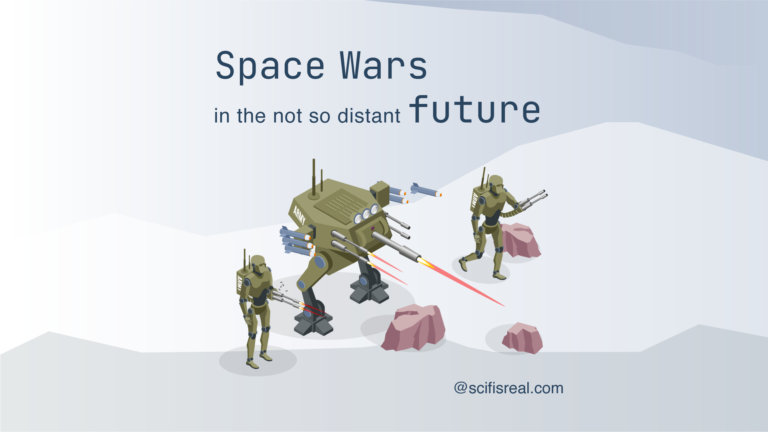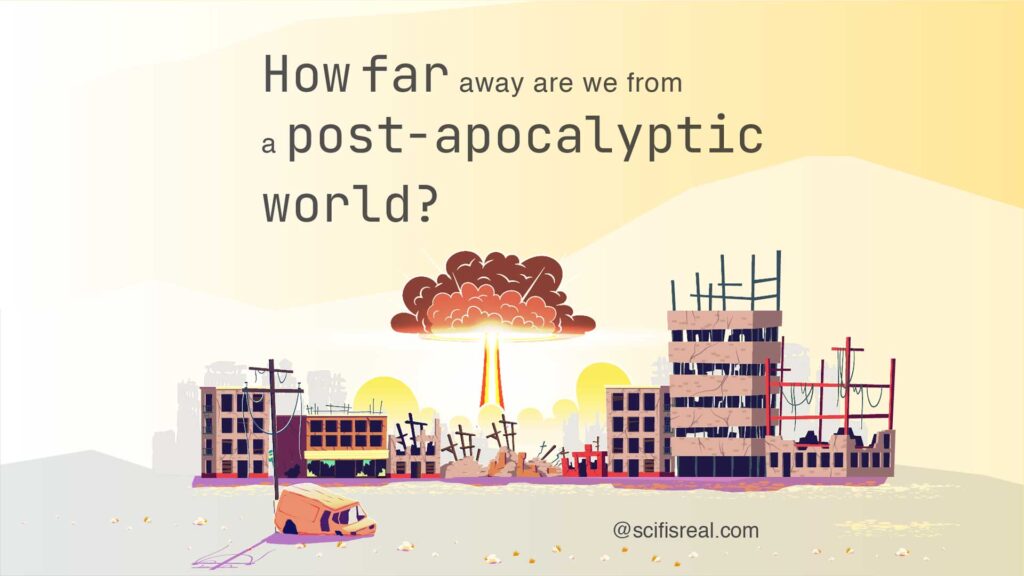Space Wars in the not so distant future

The prospect of real-life space exploration and potential colonization raises fascinating questions about territorial claims beyond Earth. Space Wars might not be a far-fetched figment of Science Fiction speculation, after all. As of now, international space law, particularly the Outer Space Treaty of 1967, prohibits nations from making sovereign claims over celestial bodies, including planets, moons, and asteroids. However, this treaty doesn’t explicitly address the issue of private companies or individuals claiming territory.
Space wars could emerge sooner than we realize
In the near future, as space exploration advances and potential colonization becomes more feasible, there may be discussions about how to manage and regulate space territories. Some possibilities include:
- International Agreements: Nations may come together to establish new treaties or amend existing ones to address the issue of territorial claims in space. These agreements could outline guidelines for exploration, resource extraction, and settlement while ensuring that no single entity gains exclusive control over celestial bodies.
- Private Ownership: Private companies investing in space exploration may seek to claim territory for resource extraction or settlement purposes. However, the legality and enforceability of such claims would likely be subject to international scrutiny and negotiation.
- Joint Ventures: Nations or private entities might engage in joint ventures to explore and utilize space resources, sharing the benefits and responsibilities of any territories they claim.
- UN Oversight: The United Nations could play a role in overseeing and regulating space activities to ensure equitable access and prevent conflicts over territorial claims.
The path forward for space territories will likely involve a combination of international cooperation, legal frameworks, and technological advancements. As space exploration continues to progress as fast as ever, these issues will become increasingly important to address.
Who owns the space?
As of now, space itself is considered the common heritage of humankind, according to international space law. The Outer Space Treaty of 1967, which forms the cornerstone of space law, explicitly states that space, including celestial bodies like planets and moons, is not subject to national appropriation by any means. This means that no country can claim sovereignty over space or any celestial bodies.
However, this does not mean that space is entirely devoid of regulation or ownership. While no one can own space itself, countries and private entities can own and operate spacecraft, satellites, and other space-based assets. Additionally, there are laws governing activities in space, such as the registration of space objects and the liability for damages caused by space activities.
There is ongoing debate and discussion about the future of space governance, including issues like resource extraction, settlement, and potential conflicts over territory. As space exploration and utilization continue to advance, the legal and regulatory frameworks governing space activities will likely evolve to address these complexities.
Space Wars might not be a distant future in Science Fiction speculation
The prospect of an imminent space war intertwines with a complex web of factors, including space treaties, the conquering of space, alien resources, the Space Force, space aircraft, space colonies, the space race, space territories, and space military.
With the increasing militarization of space and the development of anti-satellite weapons by various countries, the possibility of conflicts escalating into full-fledged space wars cannot be discounted. Disputes over territory, resources, or strategic positioning could potentially spark such conflicts.
A Space War might be the next World War III
The possibility of a space war becoming the next World War is a complex and speculative scenario that depends on factors such as technological advancements, geopolitical tensions, and international cooperation. Here are some considerations:
The increasing militarization of space, including the development and deployment of anti-satellite weapons, space-based surveillance systems, and offensive capabilities, raises concerns about the potential for conflict to spill over into space. While space has historically been viewed as a sanctuary from warfare, advances in technology and changing geopolitical dynamics could challenge this notion.
The rivalry between major powers, such as the United States, China, and Russia, could escalate into space-based conflicts. Geopolitical Tensions for competition for strategic positioning, access to resources, or dominance in key orbits could lead to confrontations that have far-reaching implications for global security.
Advances in space technology, including hypersonic missiles, directed energy weapons, and autonomous spacecraft, could enable new forms of space warfare with devastating consequences. Technological advancements of such capabilities could lower the threshold for conflict and increase the risk of escalation.
Modern society relies heavily on space-based infrastructure for communication, navigation, weather forecasting, and surveillance. With Interdependence on Space Systems if a disruption or destruction of critical space assets could have severe economic, social, and security implications, potentially drawing major powers into a conflict to protect or retaliate against attacks on their space assets.
A conflict that begins in space, whether intentionally or accidentally, could quickly escalate into a larger conflict involving multiple actors and domains, including cyber warfare, conventional military operations, and even nuclear escalation. The interconnectedness of modern warfare could make it difficult to contain the escalation of a space-based conflict.
Efforts to deter and mitigate the risk of space warfare through arms control agreements, confidence-building measures, and diplomatic dialogue are crucial for preventing the escalation of tensions into full-scale conflict. However, geopolitical rivalries and mistrust between major powers could hinder progress in such efforts.
It is not a secret that many nations are already in the works of establishing their own Space Military Forces.
How to prevent an imminent Space War
The prospect of a space war becoming the next world war is concerning, it is not inevitable. International cooperation, diplomatic engagement, and efforts to strengthen norms of responsible behavior in space can help reduce the likelihood of conflict and preserve the peaceful use of outer space for the benefit of all humankind. However, vigilance and proactive measures are essential to address the growing challenges and complexities of space security in the 21st century.
Space Treaties: Existing space treaties, such as the Outer Space Treaty of 1967, seek to prevent the militarization of space and prohibit the placement of weapons of mass destruction in orbit. However, these treaties may not be sufficient to address the complexities of modern space warfare, leading to potential violations or disputes over interpretation.
Conquering of Space: Nations and private entities are increasingly vying to establish dominance in space, whether through satellite deployments, space exploration missions, or the establishment of permanent space colonies. This competition for control and influence could escalate tensions and increase the likelihood of conflict.
Alien Resources: The discovery of extraterrestrial resources, such as rare minerals or water ice on the moon or asteroids, adds another dimension to space competition. Nations and corporations may compete to exploit these resources, leading to conflicts over ownership and access rights.
Space Force: Several countries, including the United States, have established dedicated military branches or commands focused on space operations. The creation of such Space Forces underscores the growing recognition of space as a contested domain and the need to protect national interests in space.
Space Aircraft: Advanced space aircraft, such as spaceplanes or hypersonic vehicles, could potentially be used for military purposes, including reconnaissance, surveillance, or even offensive operations. The deployment of such platforms could further escalate tensions in space.
Space Colonies: The establishment of permanent human habitats in space, such as space stations or lunar bases, raises questions about sovereignty, jurisdiction, and security. Conflicts could arise over control of these colonies or the resources they rely on for survival.
Space Race: The resurgence of a space race, driven by competition between nations or commercial entities, could fuel technological advancements but also increase the risk of conflict as rivals seek to outpace each other in space exploration and exploitation.
Space Territories: As nations and private entities stake claims to celestial bodies or establish exclusive zones for resource extraction or research, disputes over territorial sovereignty could arise, leading to diplomatic tensions or even military confrontation.
Space Military: The development of space-based weapons, including kinetic kill vehicles, directed energy weapons, or cyber capabilities, highlights the growing militarization of space. The deployment of such military assets could provoke hostile reactions from adversaries and contribute to an escalation of conflict in space.
While space warfare remains speculative, the convergence of these factors underscores the need for robust international cooperation, clear rules of engagement, and effective arms control measures to prevent the escalation of tensions and preserve the peaceful use of outer space for the benefit of all humankind.
How does science fiction imagine a future were space conquering leads to space wars?
Science fiction often explores scenarios where the conquest of space leads to space wars, depicting a variety of futuristic technologies, political dynamics, and interstellar conflicts. Here are some common themes and elements found in science fiction that imagine such futures:
Territorial Disputes: Science fiction often portrays a future where different factions, whether they be nations, corporations, or alien species, compete for control over valuable territory in space. This can include disputed planets, moons, asteroid belts, or strategic positions such as space stations or wormholes.
Resource Scarcity: In many sci-fi narratives, the expansion of humanity into space is driven by the need to exploit scarce resources on Earth or the discovery of valuable resources in space, such as rare minerals, energy sources, or habitable planets. Competition for these resources can escalate into conflict between rival factions.
Political Rivalries: Future societies depicted in science fiction often retain geopolitical tensions and power struggles seen in the present day, albeit projected into a space-faring future. Political rivalries between nations or factions may lead to proxy wars, espionage, or outright conflict in space.
Technological Advancements: Science fiction explores speculative technologies that could revolutionize space warfare, including advanced spacecraft, weapons systems, defensive shields, and artificial intelligence. These technologies can tip the balance of power and influence the tactics and strategies employed in space conflicts.
Alien Encounters: Many sci-fi stories involve humanity encountering alien civilizations, some of which may be hostile or expansionist. Interactions with alien species can trigger conflicts over territory, resources, or ideological differences, leading to epic space wars on a galactic scale.
Colonization Efforts: Science fiction often portrays efforts to establish colonies on distant planets or moons, either by Earth-based civilizations or by independent groups seeking freedom or autonomy. These colonies can become flashpoints for conflict, especially if they seek to break away from centralized control.
Ethical Dilemmas: Sci-fi explores the ethical and moral implications of space conquest and warfare, including questions about the rights of indigenous alien species, the treatment of sentient AI, and the impact of war on civilian populations. These themes add depth and complexity to narratives about space wars.
Interstellar Empires: Some sci-fi settings feature vast interstellar empires or federations, each with its own agenda, alliances, and conflicts. Wars between these empires can span entire star systems and involve millions of lives, shaping the destiny of entire galaxies.
Science fiction provides a rich tapestry of narratives that imagine the consequences of humanity’s expansion into space and the potential for conflict that accompanies it. These stories serve as cautionary tales, thought experiments, and sources of inspiration for exploring the challenges and opportunities of our future among the stars.
Space Wars in the so distant future of humanity
While the concept of space wars may seem like a fantastical notion relegated to the realms of science fiction, the rapid advancement of space technology, the increasing militarization of space, and the intensifying geopolitical rivalries on Earth suggest that such a scenario is not entirely far-fetched. As humanity continues to expand its presence into space, exploring new frontiers and exploiting extraterrestrial resources, the potential for conflict in this final frontier becomes ever more real. However, recognizing the risks and challenges inherent in space warfare, and prioritizing international cooperation, diplomacy, and arms control measures, can help mitigate these dangers and ensure that our exploration of the cosmos remains peaceful and beneficial for all. Vigilance, foresight, and a commitment to responsible space governance are essential as we navigate the uncertain terrain of humanity’s future among the stars.












